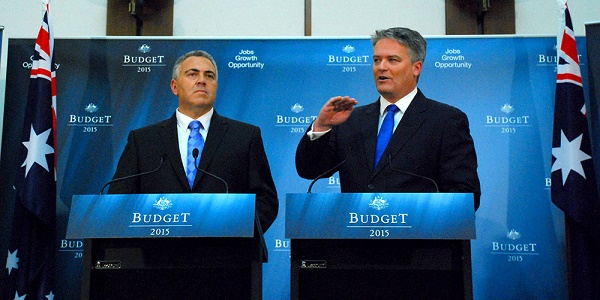So, what does the 2015/16 Federal Budget mean for you? Here’s a snapshot of what will change over the next two-three years
Age Pension
- Age Pension indexation changes proposed in 2014/15 Budget have been dumped.
- The three-year freeze in indexation of income thresholds and deeming thresholds has also been scrapped.
- The Low Income Supplement, which can amount to $324 per annum, will cease to be paid from 1 July 2017
- Changes to asset thresholds will increase pension payments for those with lower levels of assets, and will remove pension eligibility for those with higher levels.
- A doubling of the pension taper rate, from $1.50 to $3 for every $1000 over the asset free threshold.
Health and aged care
- A reversal of planned GP co-payment and $5 reduction in rebates for GP consultations
- The establishment of a taskforce to review the Medicare Benefits Schedule (MBS)
- $1.6 billion for new and amended items on the Pharmaceutical Benefits Scheme (PBS)
- Provision of one year of funding to support public dental health services
- From 1 January 2016, the rental income exemption for those in aged care, who pay their accommodation costs periodically while renting out their former home, will be removed
- From 1 February 2017, funding will be allocated to the consumer based on their aged care needs.
Growing jobs and business
- A cut in the small company tax rate by 1.5 per cent
- A small business tax deduction for assets under $20,000 to take effect from 7.30pm tonight
- A reinvigorated Restart wage subsidy of $10,000 (increase of $3500) paid to small businesses that employ older workers.
Families
- A simplified Child Care Subsidy to be implemented from 1 July 2017, based on family income
- An additional Child Care Subsidy for children who are at risk of abuse or for families experiencing temporary financial hardship
- From 1 January 2016, ‘No jab, no pay’ rule will stop access to child care payments and Family Tax Benefit Part A for those who do not vaccinate their children
- Nannies Trial to commence from 1 January 2016, providing care for approximately 10,000 children by 4000 nannies.
Multinational tax avoidance
- Introduction of a Multinational Anti-Avoidance Law to ensure business don’t escape paying tax in Australia
- Charging GST on digital products and services imported by consumers
- Increased penalties for tax avoidance by large multinational companies.
Fairer tax system
- Capping to $5000 salary sacrificing of fringe benefits for employees of not-for-profit organisations
- Additional funding to the ATO to extend the GST compliance program
- Creation of a task force to fight serious financial crime and tax evasion.
Foreign investment
- Additional and stricter penalties to ensure foreign investors do not profit from breaking the rules
- Increased scrutiny and transparency around foreign investment in agriculture, lowering of screening thresholds and implementing a comprehensive register of foreign ownership of land.
Welfare system
- An upgrade of the Department of Human Services’ information technology to meet the demands of today’s digital world
- A return of $1.5 billion to the budget by increase DHS capacity to investigate and determine welfare fraud and non-compliance
- Recovery of HELP debt from Australians who move and work overseas
- Access to the paid Parental Leave Scheme to be limited to those whose employer does not provide parental leave entitlements.
Anti-terrorism
- $1.2 billion to be invested in national security, which includes $450 million in new intelligence measures to protect Australia and Australians, and $131 million to assist the telecommunications industry to upgrade its systems to implement the metadata retention policy

